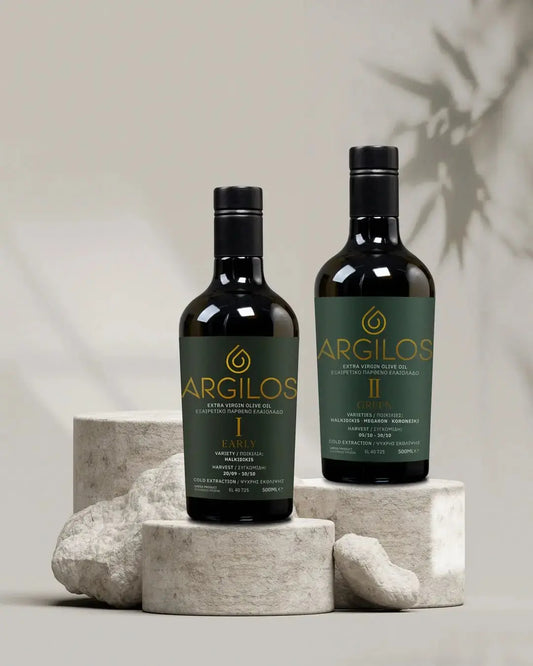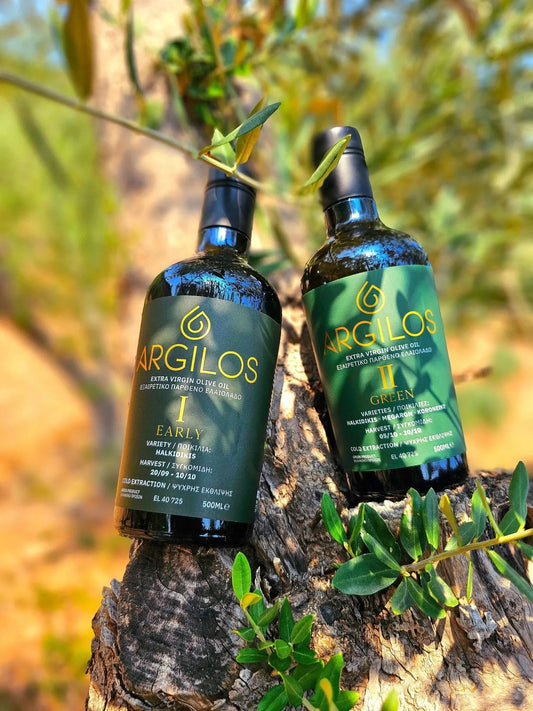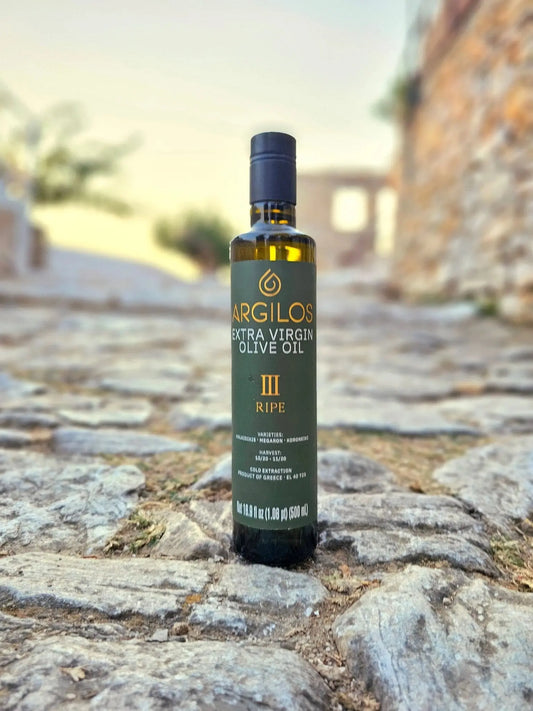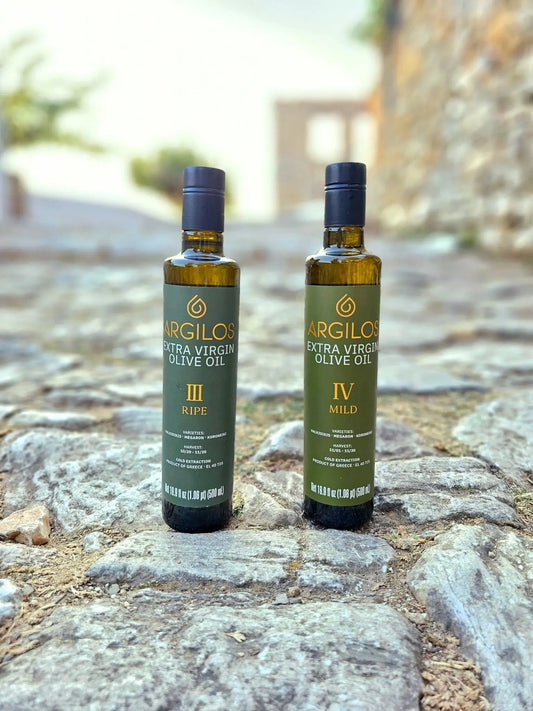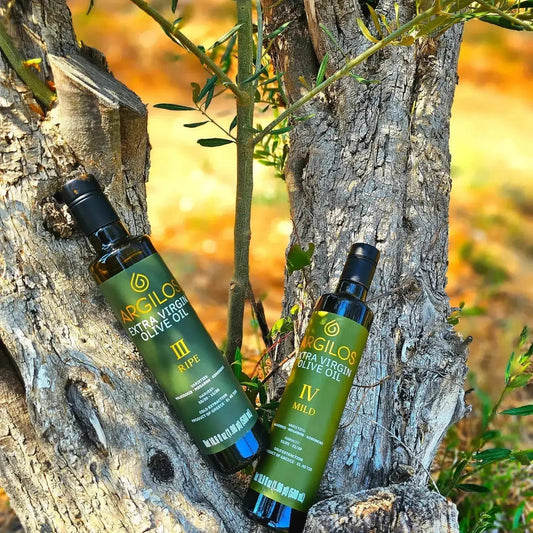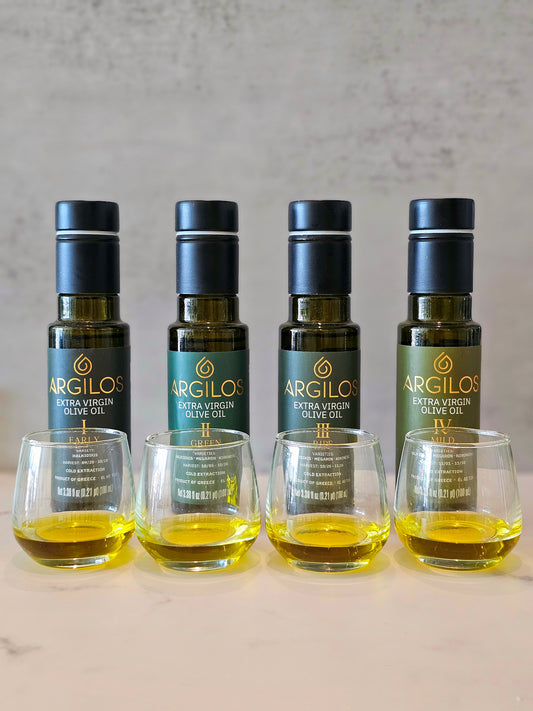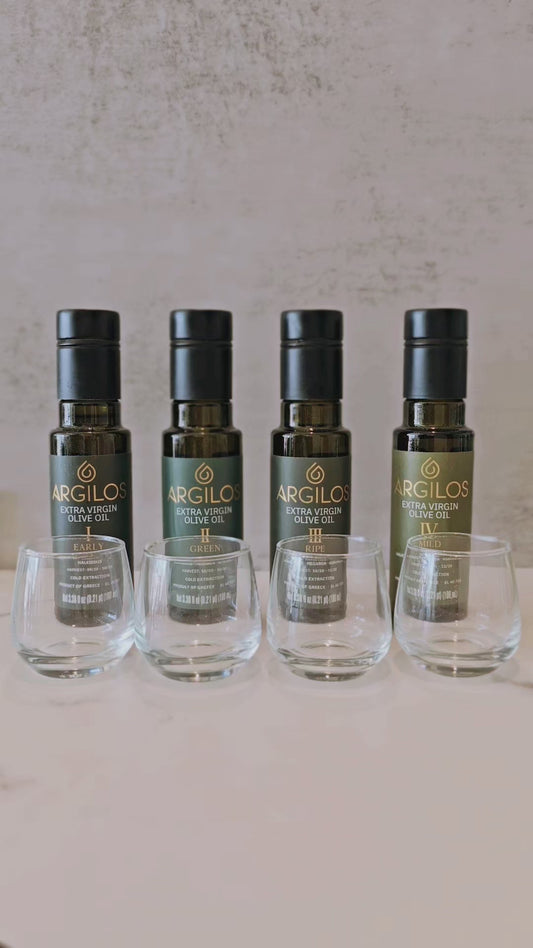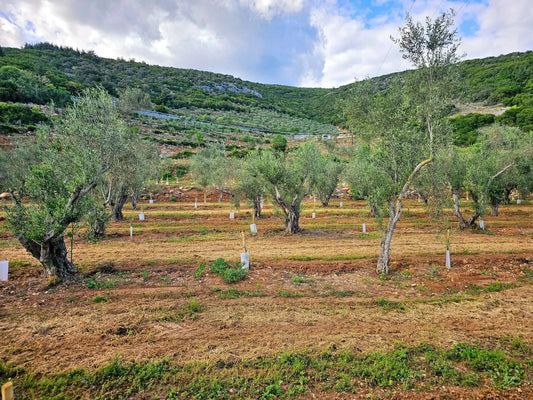The Gentle Giant: Why ARGILOS IV MILD Is Perfect for Baking
Share
Unlocking the Culinary Potential of Mild Olive Oil in Baking
Baking enthusiasts have traditionally reached for butter when creating delectable pastries and cakes, but a gastronomic revolution is unfolding in kitchens worldwide. The incorporation of olive oil—specifically mild varieties—into baking endeavors offers an abundance of benefits that transcend mere flavor enhancement. This culinary transformation represents a convergence of Mediterranean tradition with contemporary health consciousness, delivering superior nutritional profiles without compromising on the sensory experience.
The Nutritional Prowess of Olive Oil in Baked Goods
When substituting conventional fats with olive oil in baking recipes, you're embracing a monounsaturated fat profile that cardiologists consistently advocate for cardiovascular health. Unlike saturated fats prevalent in butter, olive oil contains oleic acid, which studies indicate may help reduce LDL cholesterol levels while maintaining beneficial HDL cholesterol. Additionally, the antioxidant properties derived from polyphenols present in high-quality olive oils contribute to cellular protection against oxidative stress—a boon for health-conscious bakers seeking nutritional enhancement without sacrificing palatability.
The phytonutrient composition of olive oil further distinguishes it as a superior baking ingredient. These bioactive compounds, including hydroxytyrosol and oleuropein, possess anti-inflammatory properties that may ameliorate chronic disease risk factors when incorporated into a balanced dietary pattern. Baking with olive oil transforms ordinary treats into functional foods with protective qualities beyond basic nutrition.
Introducing ARGILOS IV MILD: The Baker's Secret Ingredient
For discerning bakers pursuing excellence in both flavor and nutritional integrity, ARGILOS IV MILD emerges as an exemplary choice. This premium late-harvest olive oil from the storied slopes of Mount Pangaion in Kavala, Greece, offers a delicate profile specifically suited for baking applications where subtlety is paramount.
ARGILOS IV MILD represents the quintessential convergence of tradition and culinary versatility. Cold-pressed within hours of harvest, this single-estate oil maintains its full complement of beneficial compounds while delivering a gentle flavor profile that harmonizes with, rather than overwhelms, your carefully crafted baked goods.
What distinguishes ARGILOS IV MILD is its remarkable adaptability across baking applications. The oil's mellow character provides moisture and tenderness to cakes and muffins without the pronounced peppery notes found in more robust varieties. This makes it particularly suitable for delicate pastries where flavor equilibrium is essential. The traceable provenance via QE technology offers modern consumers the transparency they value, ensuring that each drop contributes to both culinary excellence and ethical consumption.
Exploring the Complete ARGILOS Collection for Culinary Versatility
While ARGILOS IV MILD excels in baking applications, Nostos Goods offers a comprehensive range of olive oil intensities to accommodate diverse culinary requirements. From the bold, peppery notes of early-harvest varieties to the buttery smoothness of late-harvest options, the collection represents the full spectrum of olive oil's potential.
Complementing these exceptional oils are house-made olive pastes in varieties including aromatic basil, earthy oregano, vibrant green, and rich black Kalamon. These products offer culinary enthusiasts additional avenues for incorporating Mediterranean flavors into their gastronomic repertoire, creating a holistic approach to olive-centric cuisine.
Texture Transformation: How Mild Olive Oil Elevates Baked Goods
The incorporation of mild olive oil like ARGILOS IV into baking formulations fundamentally alters the structural development and textural attributes of the final product. This metamorphosis occurs at the molecular level, where the liquid state of olive oil—as opposed to solid fats—creates distinctive patterns of gluten development and moisture retention.
Creating Superior Moisture Retention and Extended Freshness
Baked goods featuring mild olive oil exhibit remarkable moisture retention properties that conventional fats struggle to achieve. This phenomenon stems from olive oil's unique chemical composition, which forms a protective coating around flour proteins during mixing and baking. The practical outcome is cakes and quick breads that maintain their tenderness significantly longer—often extending shelf life by 25-50% compared to butter-based counterparts.
The extended freshness represents both a practical advantage for home bakers and a sustainability benefit, reducing food waste through improved longevity. The microscopic barrier created by olive oil molecules effectively impedes moisture migration, preserving the textural integrity that defines premium baked goods.
"The transition to olive oil in baking represents not merely a substitution but a fundamental upgrade in both nutritional profile and sensory experience. The resulting textures offer a complexity and longevity that conventional fats simply cannot replicate."
Flavor Harmony: Why Mild Olive Oil Creates Balanced Baked Goods
The nuanced flavor profile of ARGILOS IV MILD offers bakers an exceptional foundation for creating harmoniously flavored confections. Unlike more assertive olive varieties, the mild character integrates seamlessly with both delicate and pronounced flavor profiles, functioning as a supportive element rather than a competing component.
Complementary Flavor Pairings for Olive Oil Baking
Certain ingredients demonstrate particular synergy with mild olive oil in baking applications. This affinity creates opportunities for innovative flavor development that surpasses conventional butter-based preparations. Consider these exceptional pairings:
- Citrus zests and juices, particularly lemon and orange, which amplify the fruity undertones naturally present in ARGILOS IV MILD
- Mediterranean herbs like rosemary, thyme, and lavender that echo olive oil's terroir
- Dark chocolate, whose complex bitterness creates counterpoint to olive oil's subtle fruitiness
- Seasonal fruits, especially pears, apples, and figs, which develop caramelized depth when baked with olive oil
The versatility of mild olive oil extends beyond sweet applications. Savory baked goods—focaccia, herb-infused dinner rolls, cheese-studded breads—achieve exceptional depth when formulated with ARGILOS IV MILD as their foundational fat.
Technical Considerations: Converting Recipes to Olive Oil
Transitioning traditional recipes to incorporate olive oil requires understanding specific conversion principles and technical adjustments. This knowledge empowers bakers to adapt beloved recipes with confidence, achieving consistent results while capturing olive oil's benefits.
Conversion Ratios and Measurement Adaptations
When substituting butter with olive oil, precise measurement adaptations ensure optimal results. This systematic approach maintains proper fat proportions while accounting for olive oil's liquid state.
| Butter Amount | ARGILOS IV MILD Equivalent | Adjustment Notes |
|---|---|---|
| 1/4 cup (57g) | 3 tablespoons | Reduce liquid ingredients by 1 tablespoon |
| 1/2 cup (113g) | 1/4 cup + 2 tablespoons | Reduce liquid ingredients by 2 tablespoons |
| 1 cup (227g) | 3/4 cup | Reduce liquid ingredients by 1/4 cup |
Beyond simple measurement conversions, optimizing olive oil baking requires adjusting technique. Mixing methods differ significantly—where butter-based recipes often begin with creaming butter and sugar to incorporate air, olive oil recipes benefit from alternative leavening approaches like whipped eggs or increased chemical leaveners to achieve desired volume.
Environmental Impact: Sustainable Baking with Olive Oil
For environmentally conscious consumers, particularly the eco-minded millennials and Gen Z individuals that comprise Nostos Goods' core audience, the sustainability aspects of ingredient selection hold significant importance. Olive oil production, particularly from responsibly managed single-estates like that producing ARGILOS IV MILD, represents a more environmentally sound choice than many conventional fats.
Carbon Footprint Comparison and Ecological Benefits
The cultivation of olive trees for oil production offers multifaceted ecological advantages compared to the resource-intensive dairy industry that produces butter. Olive groves function as carbon sinks, sequestering atmospheric carbon dioxide within their extensive root systems and woody biomass. Additionally, properly managed olive cultivation requires significantly less water than dairy production, with some estimates suggesting a 75-90% reduction in water footprint compared to equivalent butter production.
The perennial nature of olive trees further enhances their environmental credentials, reducing soil disturbance and erosion while providing habitat for diverse species. This agricultural approach aligns with regenerative principles that resonate with sustainability-focused consumers seeking to minimize their ecological impact through thoughtful purchasing decisions.
Frequently Asked Questions About Baking with Mild Olive Oil
Addressing Common Concerns and Misconceptions
Many baking enthusiasts harbor questions about incorporating olive oil into their repertoire. These inquiries often reflect common misconceptions that merit clarification.
Will olive oil make my baked goods taste like olives?
When using a mild variety like ARGILOS IV MILD, the olive flavor remains exceptionally subtle, particularly in recipes containing other pronounced flavors like vanilla, chocolate, or spices. The oil contributes a barely perceptible fruitiness that many find enhances rather than detracts from the overall flavor profile.
Can I use olive oil in any baking recipe?
While extremely versatile, olive oil performs optimally in specific applications. It excels in cakes, quick breads, muffins, and many cookies. However, recipes requiring solid fat for specific structural purposes—such as flaky pie crusts or certain laminated pastries—may require different approaches or partial substitutions.
Does baking destroy olive oil's health benefits?
Research indicates that quality olive oils retain significant portions of their beneficial compounds even after exposure to baking temperatures. While some degradation occurs, the polyphenol content and favorable fatty acid profile largely persist, maintaining advantages over conventional saturated fats.
How should I store olive oil for baking?
For optimal preservation of quality, store ARGILOS IV MILD in a cool, dark location away from heat sources. While refrigeration isn't necessary, it won't harm the oil and may extend shelf life in particularly warm environments. Properly stored, premium olive oil maintains excellent baking performance for 18-24 months from pressing.
The journey toward incorporating olive oil into baking represents both a return to Mediterranean culinary traditions and an embrace of contemporary nutritional understanding. With ARGILOS IV MILD as your culinary companion, this transition offers not merely a substitution but a genuine enhancement—delivering superior nutrition, exceptional texture, and environmental benefits without compromising the sensory pleasure that defines exceptional baking.


